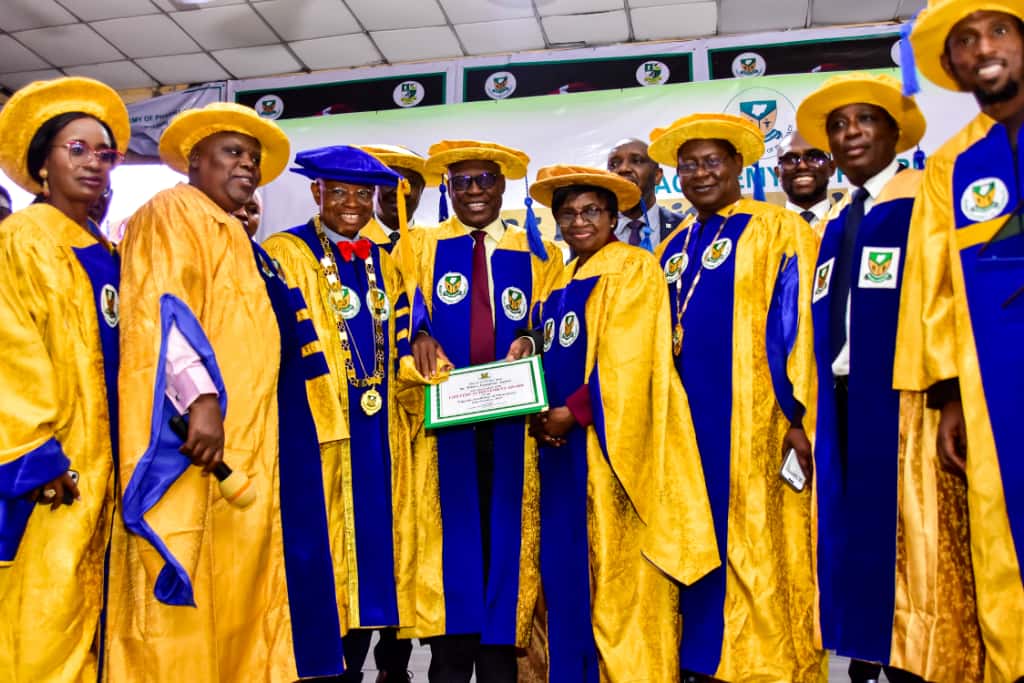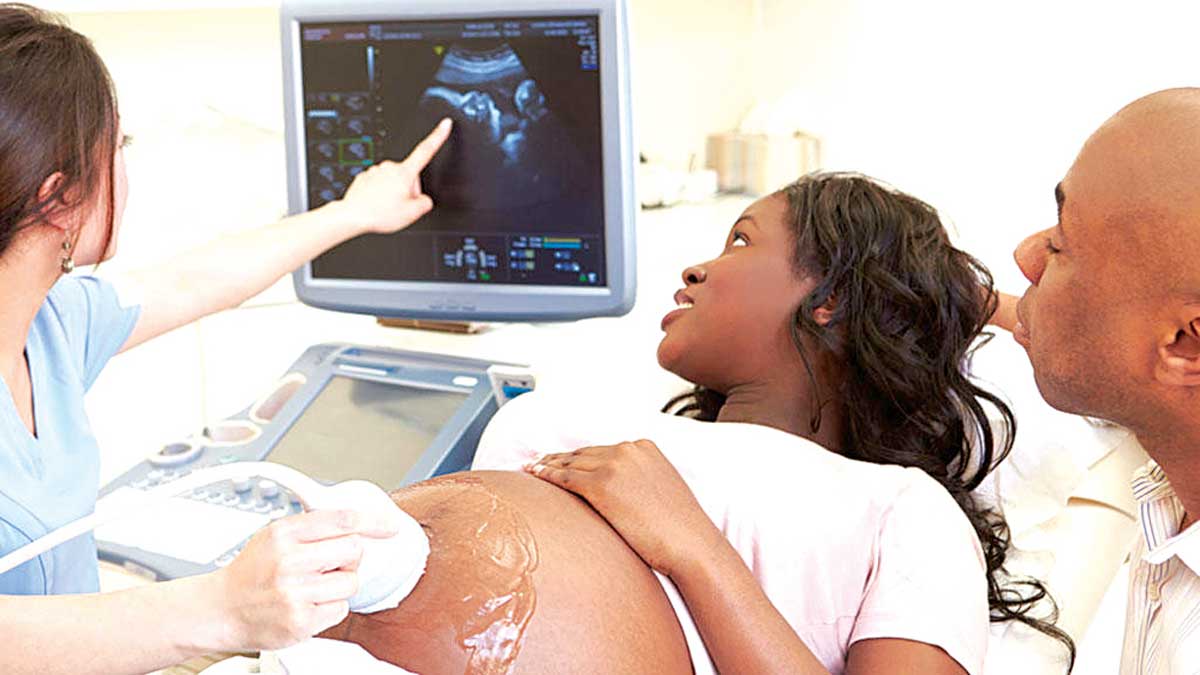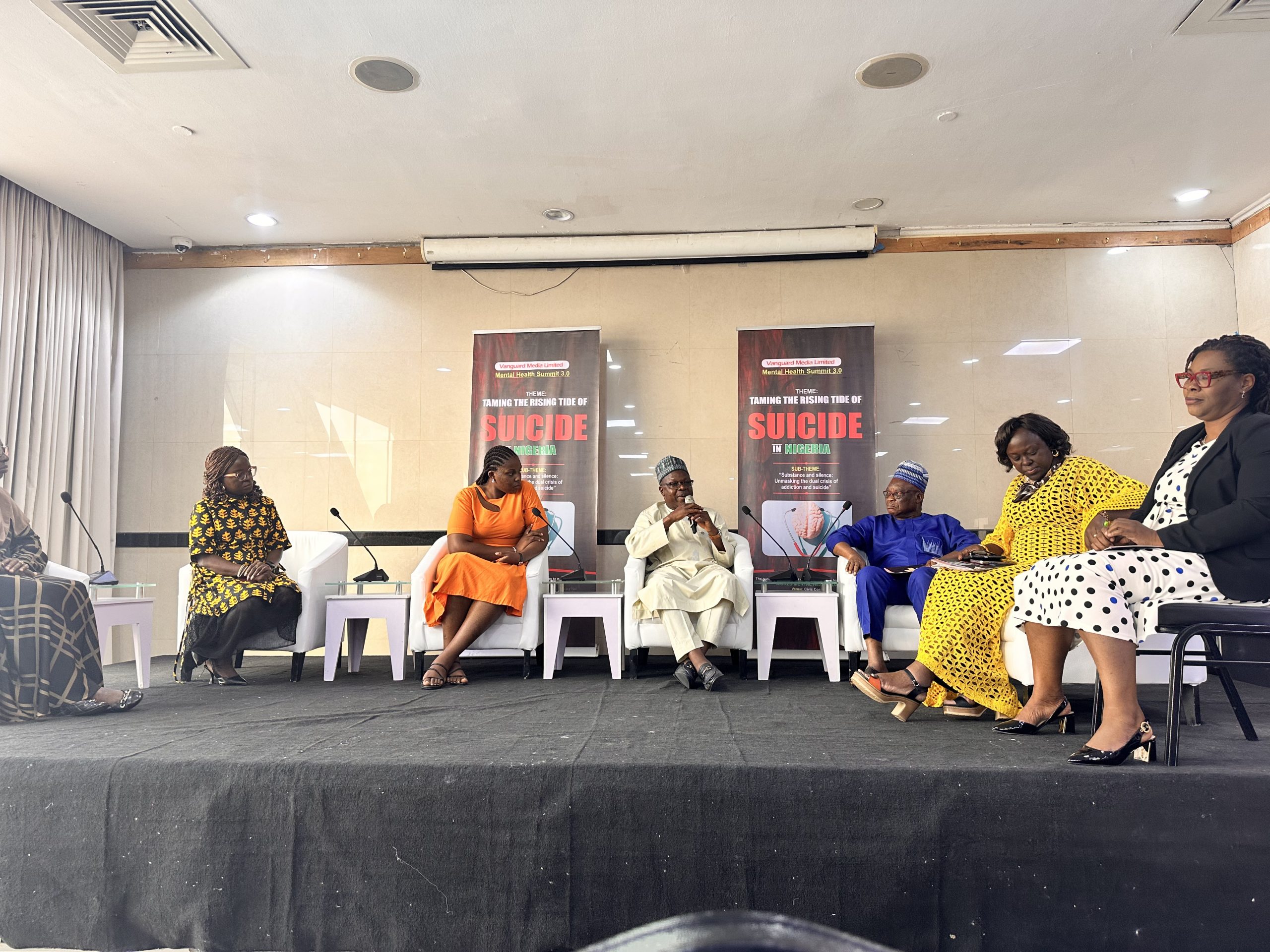• The hospital refused to accept N4 million, we ended up paying N5.5 million outright. — Family
• Was Brought In A Critical Condition, Our Priority Was To Stabilise Her — Hospital
Nigeria’s health sector faces significant challenges including severe underfunding, an inadequate and decaying infrastructure, a critical shortage of skilled healthcare professionals owing to brain drain, and a heavy disease burden exacerbated by poor public health indicators, which collectively diminish the quality of care and limit access to essential services for the majority of the population.
Dr Ayodele Ogunko, a consultant Cardiologist based in UK came to realise this challenge facing healthcare in Nigeria, which he described as a ‘terrible experience of systemic failure, emotional trauma, and financial exploitation’, which has marked the death of his sister, Mrs Yewande Olatunbosun Osofisan, a 68-year-old widow and retired Chief Matron at Paul Adefarasin House on The Rock.
Ogunko is more pained that what should have been a difficult but manageable medical case spiralled into tragedy after Yewande was transferred from the Lagos University Teaching Hospital (LUTH) to Awesome Grace Hospital, a private hospital in Idi-Araba, Mushin.
The hospital, run by a husband and wife, Dr Morgan and Mrs Morgan, offered promises of intensive care that Ogunko now believes were deceptive and dangerous.
Yewande had been diagnosed with Chronic Obstructive Pulmonary Disease (COPD), a serious condition affecting the lungs.
“My sister never smoked,” Ogunko said. “But owing to significant weight loss, she was immunologically compromised. Her lungs were failing.”
She had already spent five weeks at LUTH, where over ₦2 million were expended on treatment and antibiotics. “She became oxygen dependent,” he recalled. “Eventually, she suffered a cardiac arrest, and that’s when I had to step in more directly.”
Awesome Grace Hospital was eventually recommended as it was said to be just five minutes away from LUTH. The facility looked impressive at first glance “well decorated, golden gates, three storey building,” he narrated.
Yewande was referred to the hospital because she needed a ventilator, and LUTH’s only available ICU bed wasn’t equipped for that. The family had no choice but to try Awesome Grace. But on arrival, Ogunko said the ‘reality was different’.
“Their so-called ICU was just a regular ward. No monitoring equipment, no electrocardiogram (ECG) machine,” he said. “The nurse in charge didn’t even know how the ventilator worked; she only knew how to turn it on and off.”
Access to the ICU was also restricted. This baffled Ogunko. “I was told I couldn’t see my sister unless I got ‘special permission.’ I’m a doctor myself and was simply asking to observe the equipment being used,” he recalls.
“I waited three hours in the reception, and no one came for me. The next day, they finally let me in, and what I saw was shocking.”
According to him, one of the ventilator’s leads wasn’t connected, another wasn’t working. But at least, for the moment, Yewande seemed to be breathing more steadily. Ogunko decided to give them a chance.
He paid an initial ₦1 million deposit. “The hospital policy if you defaulted on payment, they would stop treatment and discharge the patient. Fair enough,” he said. “But they didn’t follow their own rules.”
After only three to four days, the ventilator began malfunctioning. “The machine showed red lights, then it crashed entirely,” he said. “The MD, Dr Morgan, called me personally to say the machine had failed.”
Yewande, dependent on that single ventilator, began to deteriorate quickly. “She became hypoxic, her skin colour changed and her pulse rate dropped. They called a technician who managed to revive the machine.”
Ogunko arranged for a fully-equipped ambulance, paying ₦130,000 to transfer his sister to another hospital. “I told them I was ready to pay more money (another million naira) just for them to release my sister for me to take her to another hospital, but they refused to release her, that until I paid the full bill, which had increased to ₦5 million in just four days.”
Again, he pointed to the document he signed on admission, which explicitly allowed discharge upon payment difficulty. “I asked them to stop the treatment, let me take her somewhere else. But they insisted on collecting all the money first. By the next day, they said the bill had gone up to ₦6 million. Then ₦7 million.”
Efforts to reason with either Dr Morgan or his wife led nowhere. “They tossed me around, insulted me, and raised their voices. Two days before her death, Dr Nathaniel, the LUTH doctor who referred us called, saying I should come and help resuscitate my sister. I was far away. It made no sense. Shouldn’t a hospital be doing that already?”
Ogunko believes she may have already died by that point. “They kept asking for money instead of focusing on her care. I even missed a call where she apparently wanted to speak with me. I regret that deeply.”
Eventually, he was told by Dr Nathaniel that “We tried to keep her circulation moving, but we didn’t succeed.” That was his way of announcing her death to me.
Even in death, Ogunko said his sister was not given dignity. “She died on July 22, and they moved her body to the morgue the following day. But even now, she’s still lying in the military mortuary in Yaba. They refused to release her.”
Before her passing, Ogunko had brought in a lawyer who wrote formally to the hospital requesting release. No response. After her death, the hospital finally agreed they would accept 80 per cent payment to release the body.
“If they had accepted 80 per cent of the bill when she was alive, we could have moved her to a better hospital. She might still be alive today.”
Ogunko said: “Yewande Olatunbosun Osofisan had spent her life in service, including during the COVID-19 pandemic. She likely got the lung infection while working during COVID. She wasn’t a smoker. This was infection-related COPD, something that can be managed with proper treatment.”
According to the son of the deceased, Mr. Adedoyin Omobolaji, the family was in distress when they arrived. “We were not told the cost before they started treatment. They said they needed to start treatment first before talking about bills. Later, we realised they were charging ₦515,000 per day, excluding drugs.”
He said the hospital charged ₦240,000 daily for oxygen alone, which is almost 11 times higher than the ₦22,000 they had paid per day for oxygen at LASUTH.
He also narrated how the hospital kept sending messages asking the family to take Mrs. Osofisan away because their ventilators needed servicing. The message read: “This is a reminder that your mother needs to be taken from our ICU to another ICU as we want to service our ventilators and keeping your mother in the ventilator, while machine giving signs that it needs to be serviced is not in her best interest. Though her saturation is still 100 per cent of oxygen. Kindly Come Now To Pick Your Mother.”
When contacted, Awesome Grace Hospital denied wrongdoing. Mr Theophilus Izopofono, the hospital spokesperson, said they provided critical care to the patient under challenging circumstances.
“She was brought in in a critical condition, and our priority was to stabilise her,” the hospital said. “Our ICU charges are transparent and in line with the cost of maintaining high-end equipment, consumables, and personnel.”
On the claim that the ventilators were faulty, the hospital admitted to routine servicing but said it never compromised the patient’s safety.
“We informed the family of the need to move the patient because of preventive maintenance, but this was not an emergency evacuation. At no point was the patient abandoned,” the spokesperson stated.
The hospital insisted that the bill reflected the cost of intensive care, including oxygen supply, drugs, and medical expertise. It added that the family signed an agreement acknowledging the charges and payment terms.
When asked to debunk the allegation that the patient was held against the family’s wishes, the hospital said: “It is not standard practice to stop life support without proper medical and ethical justification. We encouraged the family to continue treatment for the patient’s benefit.
“When they come next week and we present the bill, we will listen to what they can afford,” the hospital representative said. “We are open to negotiation, but it has to be reasonable. To have gone this far, we could have insisted they pay 100 percent, but we are human. What has happened has happened, and we cannot be the judge of any human. God is the ultimate judge. We leave it to Him. That said, one thing is certain: when they come to the table, we will give them the benefit of the doubt and be willing to negotiate further.”
Adedoyin, however, disputed much of the hospital’s narrative. He said he was not even the one who signed the hospital contract. “My uncle signed as the next of kin,” he explained. “I don’t know why the hospital is refusing to deal with him, and insisting on talking to me since he is the one that signed the contract. I only stepped in because I’m an accountant, and I noticed their figures didn’t add up.”
According to Adedoyin, the ₦515,000 daily charge excluded drugs, a fact they only discovered after he broke down the bill himself.
He also confirmed that the family was truly denied access to his mother initially. “It was only after several back and forth arguments that my uncle was allowed to see her, and that was the next day.”
Adedoyin recalled how, a few days before his mother’s death, the hospital called repeatedly asking him to pay up because their machines were faulty. “They told me to come and carry my mum and make payments of ₦8.3 million. This was four days before she died.”
The final straw came when, just a day before her death, the hospital requested several tests, tests Adedoyin believes should have been done before admission. These included: FBC – ₦13,000, ESR – ₦10,000, E+U+Cr – ₦27,200, Abdominopelvic CT with contrast – ₦120,000, Chest CT with contrast – ₦120,000, Ambulance – ₦60,000, Oxygen – ₦40,000: ₦390,000.
“They were still adding bills even at the end. Now, after her death, their lawyer is asking us to pay ₦6.5 million,” he said.
For Ogunko and his nephew, the matter is no longer just about money. It is about principle.
“They took advantage of our pain,” Ogunko said. “We could not even grieve in peace. They kept calling, kept demanding, even after she was gone.”
In the absence of a resolution, the family continues to live with two wounds, one emotional, the other financial. They have questions the hospital has not answered to their satisfaction, and bills they still refuse to pay.
The family says they remain in deep distress. Beyond the shock of losing a loved one, they feel trapped in a painful situation, unable to bury their mother while hospital bills and unanswered questions hang over them. “We are not looking for trouble,” Ogunko said, “we just want them to release her body so we can lay her to rest with dignity.”
The family ended up paying N5.5 million outright. The hospital refused to accept N4 million. Unfortunately, the church also refused to proceed with the service of songs without the release of the corpse. So the family had no choice but to pay N5.5m in full.






